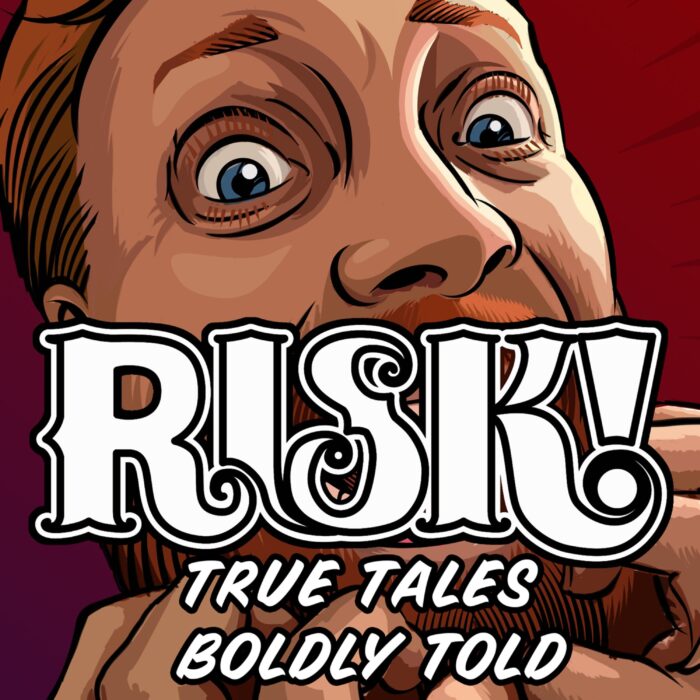Feed your brain with these 10 must-listen episodes of ‘Radiolab’

Looking for a diverse podcast serving up petri dishes of facts and specimen slides covering wide ranges of subjects including storytelling, politics, science, and philosophy? WNYC’s “Radiolab” is for you! Blended with meticulous sound arrangements, “Radiolab’s” journalism and narration will make you want to put on your figurative lab coat and take a virtual visit to a research hub through the speakers of your listening device.
Since 2002, host Jad Abumrad has driven the show to tackle scientific questions and study the planet. Latif Nasser and Lulu Miller co-host with other guests to bring each story to life.
The show will inspire new ideas by challenging listeners and their defined understandings of the world at large. Episodes will take you on a journey, learning about topics like the color spectrum to memory to cataclysmic destruction. Most episodes are under 60 minutes in length.
We’ve gathered some of the best episodes if you’re just getting into the series and would like to venture further into Radiolab’s stellar archive:
The Vanishing of Harry Pace
At the height of his career in the music industry, innovator Harry Pace disappeared without a trace. Responsible for launching the music careers of artists like Ethel Waters and Louis Armstrong, Harry Pace changed the music landscape forever with his record label, Black Swan Records. This miniseries explores his legacy by speaking with family and friends in an attempt to unearth secrets lurking beneath the face value of this story to grasp what happened. “The Vanishing of Harry Pace” is by the creators of the podcast “Dolly Parton’s America.”
Breath
Have you wondered how breathing works? How do babies receive oxygen before they’re born? Does musician Kenny G breathe while sustaining the sound of his saxophone? Can we learn circular breathing? This episode takes a scientific approach to explain what happens during respiration and how it’s fundamental to the brain’s functioning.
Translation
This episode studies the power of expression. How can words succeed or fail to convey their meanings in both spoken and written formats? Can words and texts get lost in translation when switching between languages? Is it possible to bridge the gap? Professor of cognitive science Doug Hofstadter appears on the show to illuminate these concepts.
Deep Cuts
Hosts Lulu and Latif review some of their past favorite episodes on “Deep Cuts.” The past episode on memory is reviewed. Why do some people have memories from when they’re young and others do not? Another favorite topic involved music for grieving families. The hosts interviewed French composer David Lang, who was commissioned to write background music for a morgue in France. The project, “Salle Des Departs,” captured moments of the person’s life in song to pay tribute to them and their families.
Enemy of Mankind
America’s Supreme Court is analyzed. Should it be a superseding enforcer around the globe? Guests debate whether or not it should preside as the overruling court of the world. The Alien Tort Statute is discussed and cites the Jesner v. Arab Bank case as an example of how America’s response and liability can impact human rights issues overseas. Global consideration and autonomy are studied.
Deception
Why do people lie? How can we know if someone is telling the truth? “Deception” investigates liars, lies, and self-deceivers. This episode wonders if it’s possible for anyone to lead a completely honest life. This episode attempted to answer these questions and recruited a psychologist, compulsive liars, and people who attempt to catch liars in the act. Researchers sought a group of individuals who were sorted into two groups; pathological liars and non-liars. Brain scans of both groups were performed and results were compared. And yes, liars’ brains look differently! Liars have 25% more connections in their brains than non-liars.
Insomnia Line
What is insomnia, and why did so many people report they suffered from disrupted sleeping schedules in times of COVID-19? “Radiolab” opened a phone line to speak with self-proclaimed Coronasomnia sufferers to see what was keeping them awake at night.
Elements
This episode offers a new way of looking at the Periodic Table of Elements, especially if the last time you reviewed the chart was in your high school chemistry class. Musicians, poets, journalists, and a physician were recruited to reimagine our understanding of chemical elements. This episode was inspired by poetry performances by Emotive Fruition and the band Sylvan Esso’s composition, “Jamie’s Song.”
Speedy Beet
A short episode about Beethoven and the emphasis of time and timing in his compositions. Beethoven was one of the first composers to work with the metronome. The episode entertains theories of why tempos were notated so fast. There are rumors that Beethoven’s metronome was defective, that his assistants lost his sheet music and re-notated them, and that he was perhaps already deaf by that time which changed his relationship to music. The episode explains the notion of human time through the lens of Vierordt’s law, a principle discovered in the 1860s by Austrian doctor Karl von Vierordt. It states that people’s perception of time is skewed. People will overestimate short periods of time and underestimate long periods. This idea can be applied to composing music.
G: Relative Genius
“Radiolab’s” “G” series is supported by Science Sandbox. This episode describes Albert Einstein’s death wishes. He wanted to be cremated and have his ashes scattered in a secret location. But the pathologist who performed his autopsy didn’t follow his wishes. A strange scavenger hunt ensued for his stolen brain.





